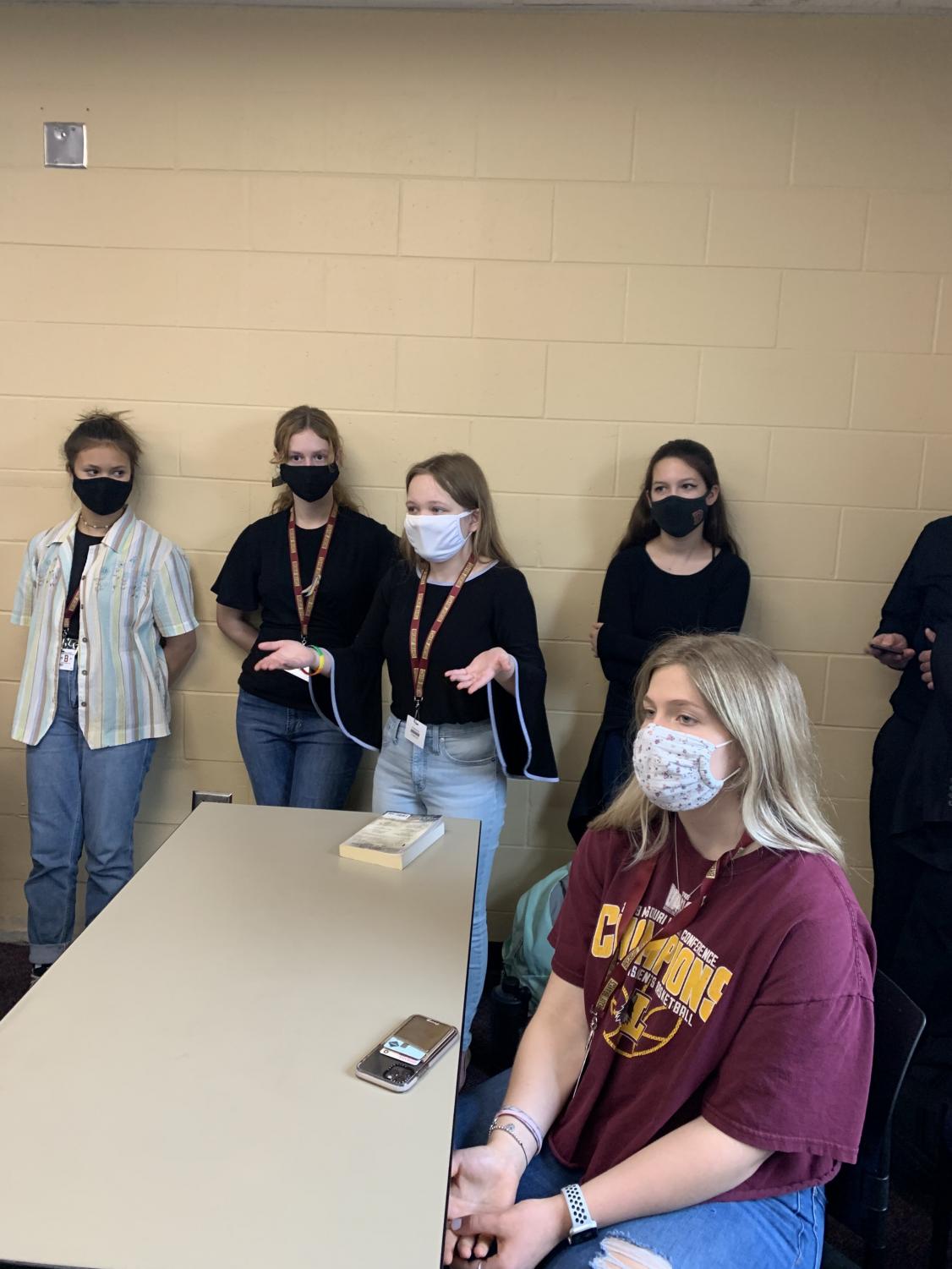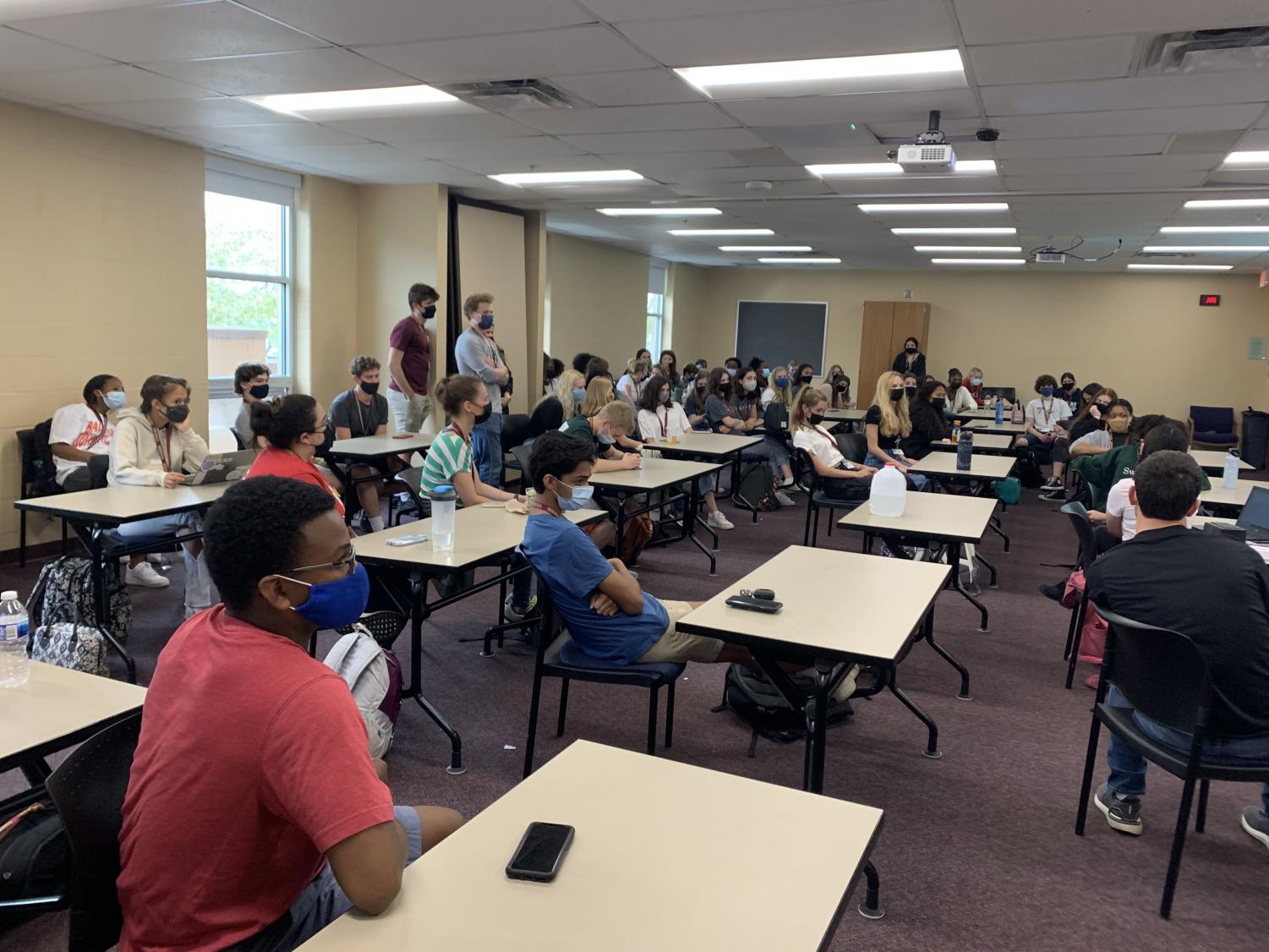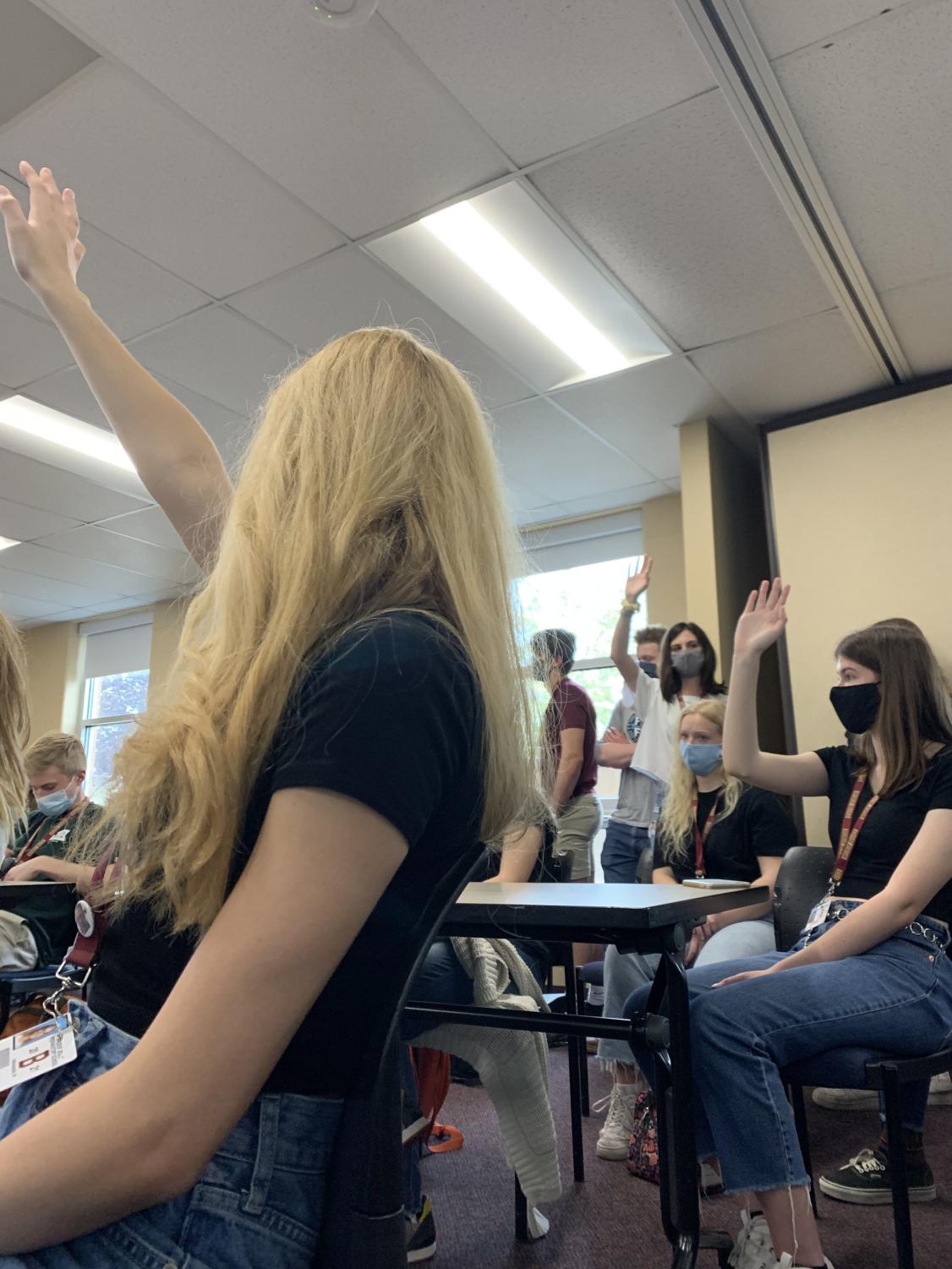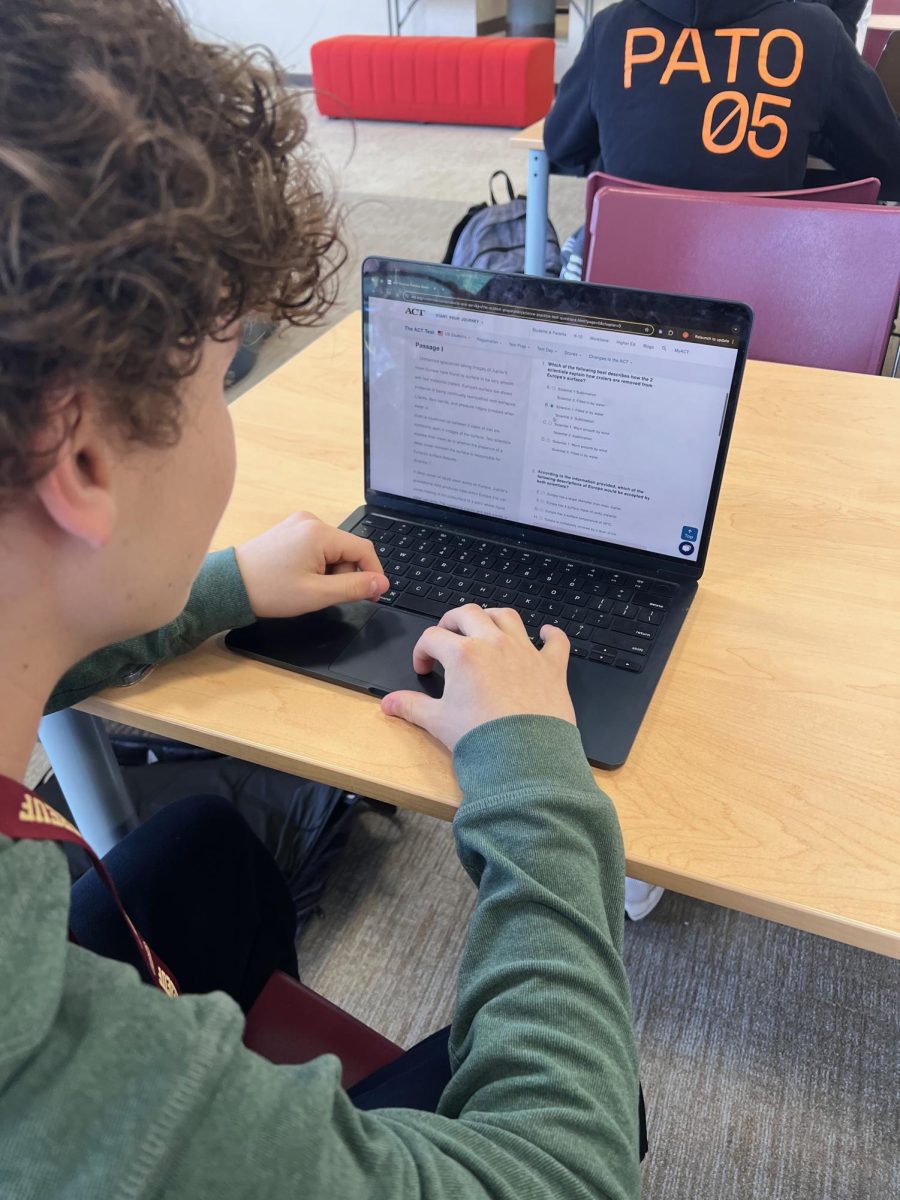Brebeuf Clubs Discuss Morality and Politics Regarding Abortion
May 7, 2021
Access to abortion has been a topic both widely criticized and supported by members of our nation for years. Roe v. Wade deemed abortion constitutionally protected in 1973, therefore legal in all U.S states, but since the decision, pro-life groups have emerged to advocate against that ruling. One branch has even reached Brebeuf Jesuit to create the “Right to Life Club.” The group sat down on April 28 with the Brebeuf Young Democrats club and Young Republicans to discuss opinions, arguments, and the general morality of abortion.
The groups convened in the LGI room and were given instructions to remain civil and respectful, with three questions to discuss: 1. What are the preborn? 2. Is abortion morally good, evil, or somewhere in between? Are there exceptions? 3. At what point, if any, should the government step in regarding abortion?
Question 1: What are the preborn?
The first question set the groundwork for the rest of the discussion. Merriam Webster generally describes the term “preborn” as “the existing but not yet born,” but participants had more insightful observations.
Erik Eigenbrod ‘24 of the Right to Life Club started off with the definition: “A living human person who has their own individual rights.” Summer Swenson ‘22 countered that definition with a point regarding intention: “If you don’t want to have a baby, you would kind of just think of it more as an embryo, but some people put value behind that embryo because they believe it (the preborn) to be their future baby. It just depends where you put that value.”
“To me, it’s just a clump of cells, but to other people maybe it’s not,” agreed Sophie Rouch ‘22.
The general idea of intention for the future of the fetus remained a consistent
factor in the Young Democrats’ definition of preborn. On the other side, the Right to Life club questioned intention for life as a viable definition
“Life’s value is not determined on what someone else thinks,’’ said Jacob Spolyar ‘22. “The stage of life in which the fetus is in additionally determines the definition of “life” for some.”
Maggie Gonzalez ‘22 says, “I personally believe that life doesn’t really start until the baby can live outside the mother’s womb – I don’t consider it killing, because there’s no way the baby could live outside of the mother.’’

Photo Credit: Elisabeth Porter ’23
Question 2: Is abortion morally good, evil, or somewhere in between?
“I don’t really believe that abortion is morally good or evil. Every situation is different. You can’t define it or stamp it as one or the other because it’s not, and I don’t think it’s my right to tell someone else if I think it’s morally right or not,’’ said Sammie Smulyan ‘22.
The second question of the discussion was by far the most popular topic. Encompassed in the question of morality were arguments regarding personal rights, the prioritization of those rights, and forms of abortion.
Morality as a subjective was challenged by members of the Right to Life Club, as Simon Torosian ‘23 said, “I think for a government or a society to function, we have to be able to decide what is moral and what is not.’’
The statement warranted a response from Evie Relue ‘24: “If we’re going to talk about the same ideas of humanity or morals, shouldn’t it be determined by the one who is pregnant? Their morals are the most important part of it.’’
The idea of the rights of women vs. the rights of the fetus was then discussed.
“People always talk about, ‘What about the women’s right to choose?’ and I think we do have a right to choose, but I think our rights stop when we infringe upon someone else’s,” said Maria Thomas ‘23.
“We have a history in this world of dehumanizing people, for an obvious example, so many racist acts. When you strip those rights from people automatically, that’s what’s wrong. That’s what we did in history,” said Torosian.
In response, Caitlin Smith ‘23 questioned the capacity of a fetus to determine personal rights. “How can you infringe upon its rights if it cannot decide its rights, physically, emotionally, mentally decide it’s rights?’’
Relue supported this line of thinking with a different perspective on the infringement of rights: “Does that not also prioritize the fetus before the mother’s life? People can be seriously harmed by the act of childbirth …To enforce that, is that not taking away her right to live a healthy life and be able to support herself?”
Another facet of morality is the conditions in which the moral or immoral act takes place. This point was brought up by Eilidh Ferries-Rowe ‘22: “If you’re going to have a baby then not be able to provide for it, a lot of times that baby will end up in poverty or in the system.’’
According to Child Welfare, over 400,000 children are currently in the foster care system, a large number abused or mistreated. Thomas responded to this reasoning with a statement regarding circumstance: “Human dignity does not diminish based on the circumstance in which they are conceived and the circumstances in which they will live.’’
Relue brought the issue back around to morality, but with a different perspective: “Putting that said baby into a world where it’s bound to suffer instead of letting it live a short life where it doesn’t understand pain, doesn’t understand emotion, does not understand the problems of the world … Is that morally okay, to bring it up only to make it suffer?”

Photo Credit: Elisabeth Porter ’23
Question 3: At what point, if any, should the government step in regarding abortion?
The third and final question of the discussion was left relatively untouched, with the exception of Shaan Mishra ‘21.
“I think we’ve been treating abortion like a hypothetical when it is in fact an inevitability,” Mishra said. “Criminalizing abortion does not end abortion; it just makes it more unsafe. The answer is yes, but the answer is to prevent abortions from happening in the first place. We do that through comprehensive sex education, access to birth control.”

Photo Credit: Elisabeth Porter ’23





Grace Erickson • May 13, 2021 at 8:42 pm
very well written article!